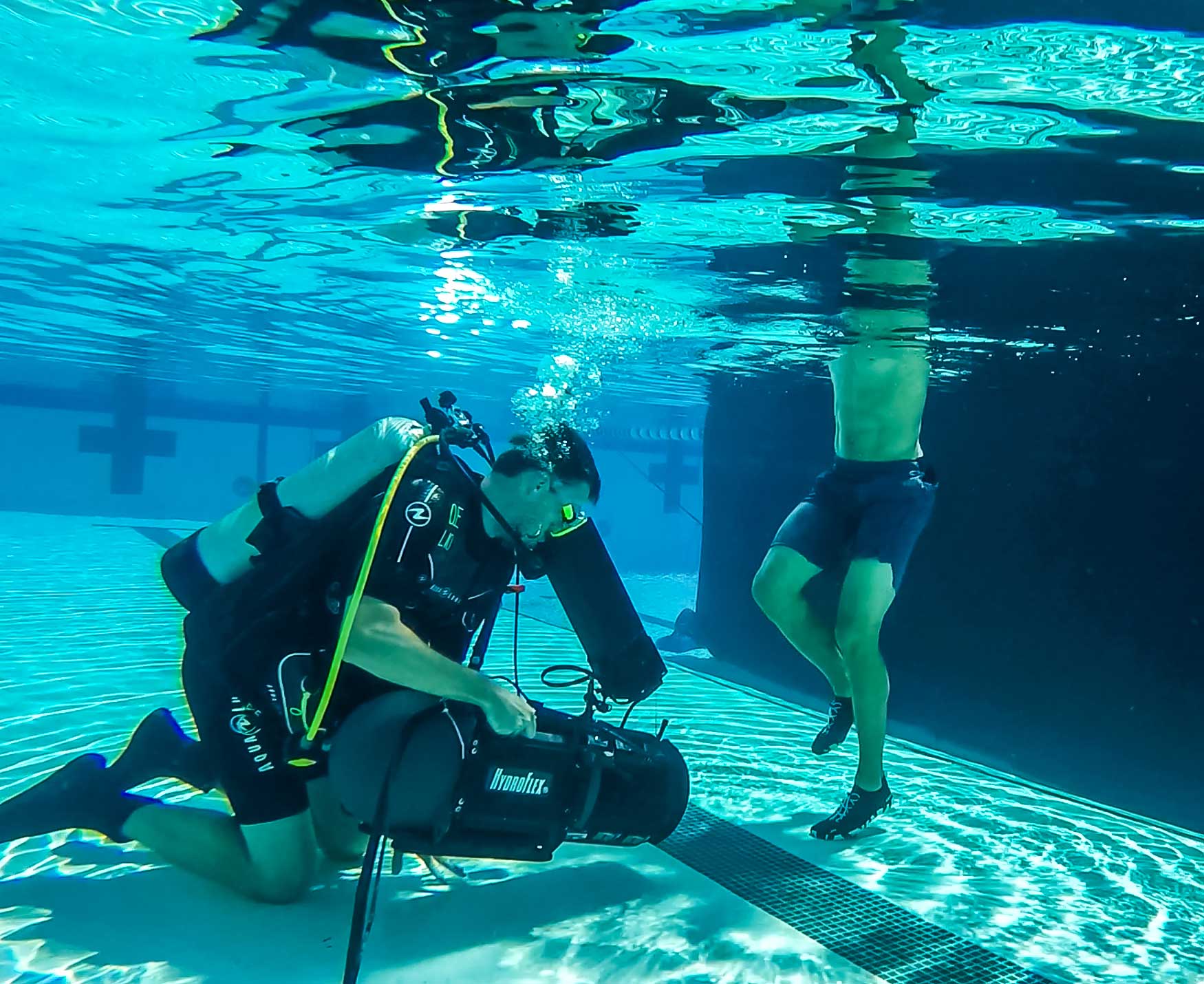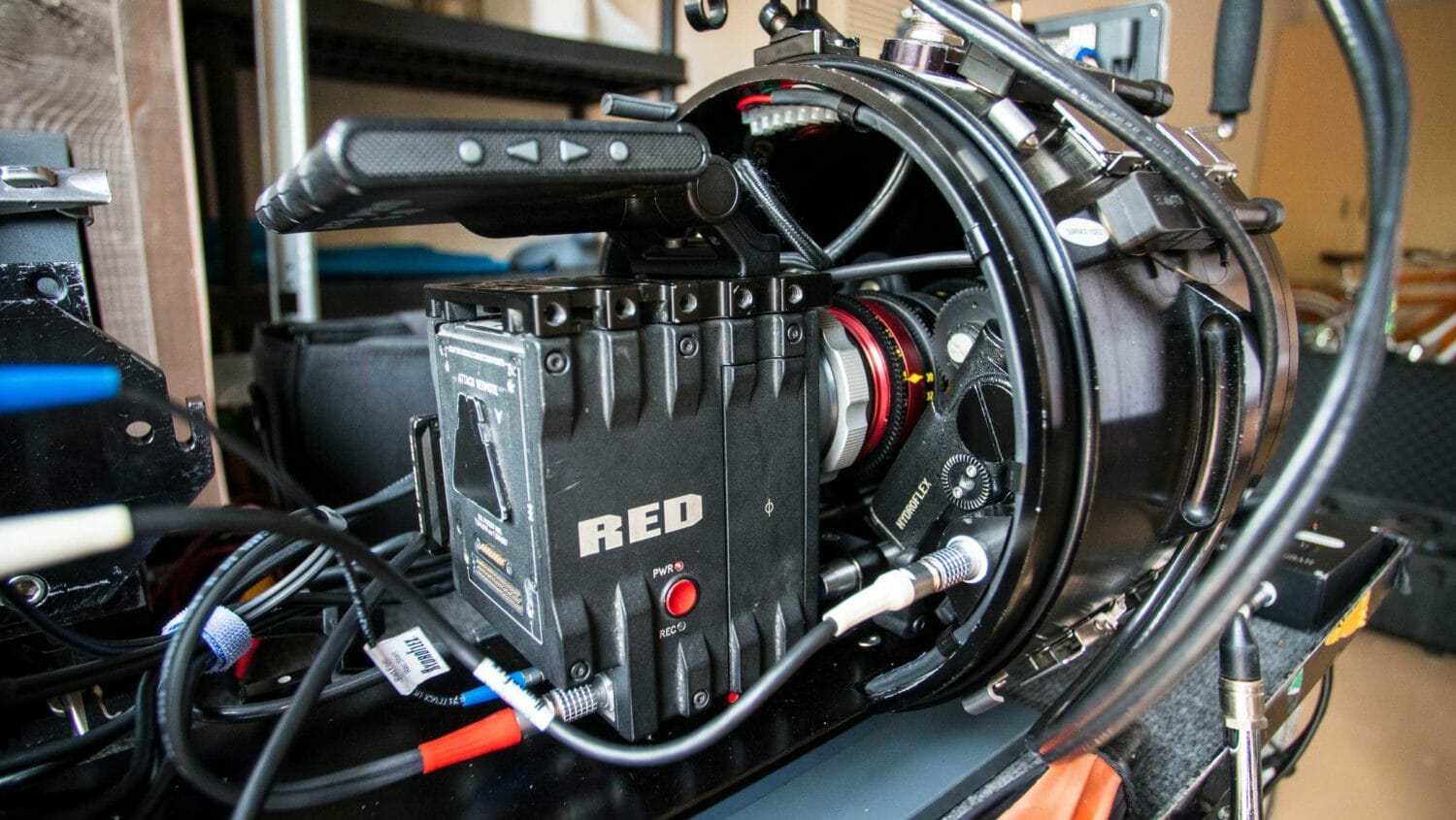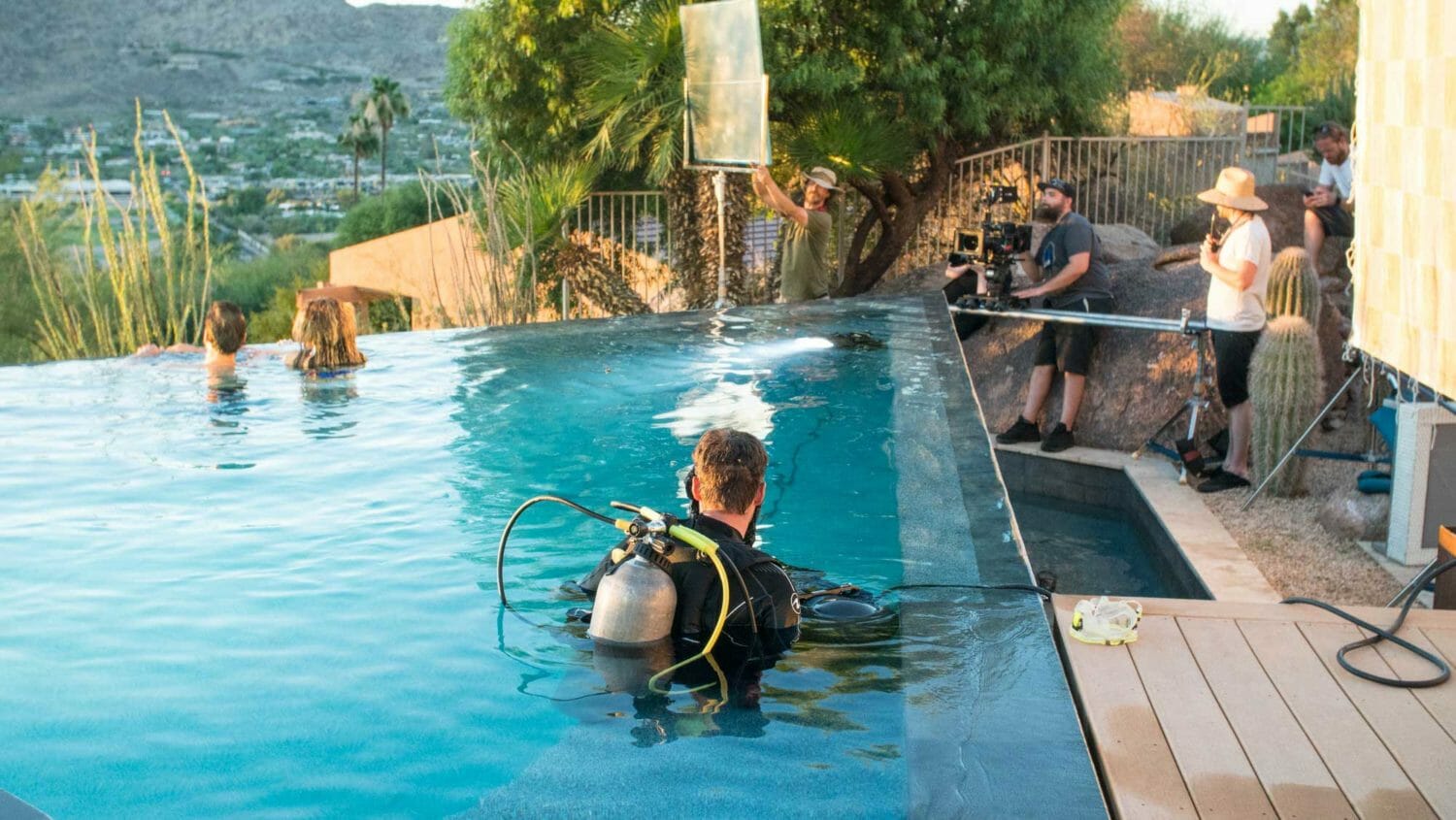What Does It Take To Be An Underwater Camera Operator?
From repelling the sides of bluffs to jumping out of an airplane, if there’s a place with deadly risk and a killer view, you can bet that human beings will find a way to document it. And from that newborn need, an advanced ‘specialty operator’ position will naturally be created and followed by a rush of people looking to fill the position.
The good thing about this is — it turns out most people don’t like risking their lives for a day rate under 1K. That means that your competition will be greatly diminished as the market isn’t saturated. But there’s still plenty of thrill seekers out there who are perfectly comfortable risking their lives for a shot and revel in the challenge of it. So if you’re considering a transition into a specialty operator position that’s on the dangerous side, don’t expect zero competitors.
One of the more popular specialty op jobs — An Underwater Camera Operator.
You might hear the low tones of a piano humming the Jaws theme right about now. Obviously the kind of body of water you’re in will determine what level of risk is involved, but if you can’t navigate around the gear, you’re gonna be in deep water — No pun intended.
We’re going to explore some of the requirements necessary to become and function as an Underwater Camera Operator.
Let’s dive in!
Camera Operating Experience
First things first — you need plenty of years experience with standard camera operating. The wider the variety of cameras, the better. You want to be able to assess problems and find quick solutions. You never want to put yourself into a position where your lack of experience holds up a production. Instead, work your way up to it and get plenty of operating time under your belt. This will allow you to transition with confidence and ease. Learn the nuances of camera movement and framing. Figure out the fundamentals of cinematography and apply them to your craft. Once you have built somewhat of a career or reputation — take that plunge!
There are many routes you can take to become a camera operator on a basic level. The first and obvious choice being film school. But that doesn’t guarantee anything. That just allows you to learn the basic skills and get your feet wet. Another option is mentoring underneath an ENG camera operator. This isn’t the most ideal way to gain experience, but it’s a guaranteed paycheck. And if you don’t like either of these options, you can always go the cost-effective route — Self Education Online. As opposed to 15 years ago, there’s a plethora of places to get educated like Master Class, NoFilmSchool.com or DVXuser.com, etc. These sites offer up great knowledge for you to soak up, but nothing beats on-set experience and that will allow you to truly grow.

Scuba Diving Certification
As long as you’re comfortable squeezing into a wetsuit, you can get a Scuba Diving Certification. You might think since you live nowhere near the ocean that it might be hard to acquire or that it’s associated with travel costs. But if there’s at least a lake or a pool in your state, it’s likely you’ll be able to find somewhere to get professionally certified.
If you’re having a hard time finding instructors near you by just simply searching google, try out these sites to get local certification information:
In simple terms, Scuba Diving is a type of underwater diving where a person uses an underwater breathing apparatus that is self-contained and not connected to any air supply at the surface. Scuba Divers carry their breathing gas with them (typically compressed air or the oxygen/air hybrid Nitrox) for more independent movement while underwater. Through a regulator a diver is supplied with gas and depending on the type of scuba system (open-circuit or closed-circuit), you can spend an extended amount of time underwater.
If you’re looking to become a scuba diver, it goes without saying that if you’re not a strong swimmer, you probably shouldn’t sign up for this career. You need to be comfortable swimming in any kind of water (calm or rough) and you need to acquire a deep understanding of scuba diving etiquette and equipment.

Training On Underwater Camera Housing & Jib (Hydroflex – CA)
Underwater camera housing isn’t rocket science, but it does require some initial guidance and some practice prepping before you bring it out on set and operate for the first time. I recommend two things. 1 — You should take a drive up to LA and visit a company like Hydroflex who build some of the best underwater camera systems on the market, and get some hands-on education from their specialists. 2 — You should take a whole day to prep and practice in a pool to work out any kinks and get comfortable with fully operating.
Here’s a list of some of the best underwater camera housing brands on the market:
Whether it’s stills or motion, you’ll be able to find a good match with these resources. Over time these housings have become more sophisticated and allowed operators better visibility and more access to adjust settings. Not only should you familiarize yourself with the housing, but you should get some practice with the underwater cranes that stabilize the cameras. They are commonly used and can give you an edge over other operators.
Stay fit
Don’t forget to eat your vegetables and do your sit-ups. If you’re going to be in the water operating a camera, make sure you can physically handle the demand of the job. You’re no good to anyone if you burnout quickly. Some of these housings are HEAVY! With a Hydroflex housing for a cinema camera — you need two people just to put the thing in the water. And not to mention swimming and pushing it around. Now granted, once it gains buoyancy, it will be much easier to maneuver, but it can sap your energy quickly. Especially if you’re not hydrated. Being surrounded by a bunch of water might make you forget that you need to drink some. Don’t do that.
There might be some down time in between jobs. Don’t let your fitness go by the wayside. Stay up on your physical health and exercise regularly. Not only that, you should go swimming at a lap pool weekly to keep those specific muscles you only fire while swimming fresh and strong.

Market Yourself As A Underwater Camera Operator
I get it, you do a lot of different things and you want to advertise all of them. But sometimes that can work against you. People who market themselves under multiple titles may seem spread thin and all over the place. If you’re torn because you do standard camera operating out of water as well or you’re also an editor, it’s time to make a decision and stick with one title. This doesn’t mean you can’t advertise for that other job skill, but keep them separated and never use them together.
Another good way to get some gigs rolling in — invest in your career and shoot a highlight reel that presents your skill level and ability. This is always a proven way to get the ball rolling. You’re only as good as your last gig, so if you have a resume with zero underwater footage, you need to present your abilities on your own dime. Put together a small shoot highlighting your craft.
Everyone in the industry signs up for job posting sites. It doesn’t matter if you work in ‘Hollywood’ — you’re going to see plenty of people scrambling to get as many gigs as possible. This is a completely honorable way to acquire some work, but I wouldn’t use it as a number one funnel.
Even if it doesn’t garner much work annually, it’s just good practice to advertise through local production associations. Not every state has one, but for those that do, you’re likely to locate all the top local professionals there. And if you want to cover all bases, this is one of them.


